|
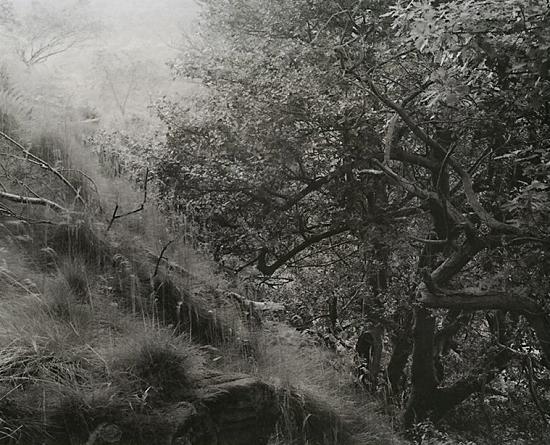
John Blakemore
1 2
_______________________
Ghazal 314
Rumi
b. September 30, 1207
Translated by Jack Marshall
You who are not kept anxiously awake for love's sake, sleep on.
In restless search for that river, we hurry along;
you whose heart such anxiety has not disturbed, sleep on.
Love's place is out beyond the many separate sects;
since you love choosing and excluding, sleep on.
Love's dawn cup is our sunrise, his dusk our supper;
you whose longing is for sweets and whose passion
is for supper, sleep on.
In search of the philosopher's stone, we are melting like copper;
you whose philosopher's stone is cushion and pillow, sleep on.
I have abandoned hope for my brain and head; you who wish for
a clear head and fresh brain, sleep on.
I have torn speech like a tattered robe and let words go;
you who are still dressed in your clothes, sleep on.
Rumi
assorted poems in translation
_______________________

Gust of Wind
Lucien Levy-Dhurmer
b. September 30, 1865
_______________________
Historical Amnesias: An Interview with Paul Connerton
Cabinet, Issue 42 Forgetting Summer 2011
(....)
... if a person undergoes a transition to some new kind of identity-a new form of sexual identity, say, or political attachment-it would often be deleterious for them to think too seriously or too long about their previous attachments. So the best thing might be to discard these memories that wouldn't serve any practical purpose in the ongoing life of the present. To think too closely about their previous attachment would bring about too much cognitive dissonance in terms of how their memories of the past related to their ongoing practices in the present. Just think of Saint Augustine-think about the amount of cognitive dissonance that that poor fellow would have had to endure if he had thought too long about his earlier life.
...(more)
_______________________
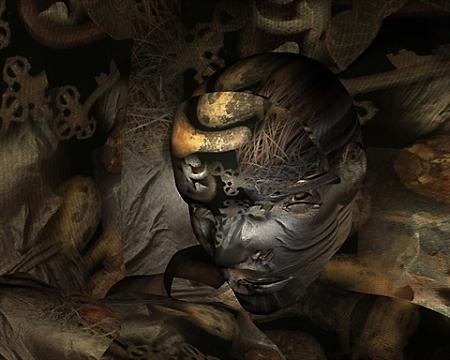
Lock us up forever V
Peter Ciccariello
winners and finalists
"Changes"
Centre Culturel de Rencontres
Abbaye de Neumünster
Luxembourg.
_______________________
Correcting the Abysmal 'New York Times' Coverage of Occupy Wall Street
Allison Kilkenny
(....)
While the left loses the valuable organizational mechanism of unions, the right has gained corporate masters like the Koch brothers to disseminate millions of dollars into astroturfing campaigns to organize and destroy on their behalf. While the left makes signs, the right has already deployed troupes to scream at town hall events.
These are the kinds of massive oppositional forces activists find themselves facing these days: an incredibly oppressive police state and a corporate cash monster bearing down on them from the right. Meanwhile, their union support army is either in retreat or preoccupied fighting other battles on other fronts in Wisconsin or Ohio, or one of the other forty-eight states where anti-union legislation was introduced this year courtesy of ALEC, a front group that serves as proxy for corporate interests.
Instead of bemoaning the fact that protesters haven’t arrived in matching uniforms with a coherent PowerPoint presentation, these are the issues we should be addressing. Of course the majority of Zuccotti Park occupiers are young, brash and lost. They’d have to be to do something like this, and risk getting hypothermia for the chance to be ignored and belittled by the media. Young people are always the first ones willing to risk comfort and security for the romantic vision of a better tomorrow.
No, a movement can’t be supported on a shaky foundation, nor do I expect journalists to also serve as activism advisers, but Bellafante’s piece does nothing to help us understand why Zuni Tikka is the last woman standing....(more)
_______________________
How to Annoy the Ruling Class
13 Ways to Look at the Occupation of Wall Street
Charles M. Young
_______________________
Bill O'Reilly Vs. Dr. Seuss and Jesus:
10 Things That Would Enrage the Right-Wing if They Were Introduced Now
Welcome to America at the edge of insanity, where even the most innocuous items are now considered diabolical threats to the culture.
David Sirota
_______________________
Why the Idea and Why Communism?
Slavoj Zizek
Communism is today not the name of a solution but the name of a problem: the problem of the commons in all its dimensions—the commons of nature as the substance of our life, the problem of our biogenetic commons, the problem of our cultural commons (“intellectual property”), and, last but not least, the problem of the commons as that universal space of humanity from which no one should be excluded. Whatever the solution might be, it will have to solve this problem. _______________________
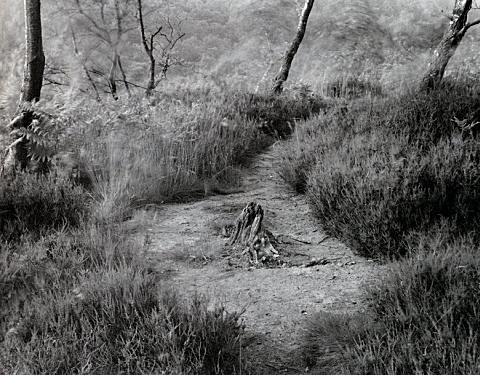
John Blakemore
Photography Annual 1985
via Guy Sargent
_______________________
Towards a New Concept of Existence
Alain Badiou
(....)
We have here a profound and difficult understanding of what happens to a multiplicity when it really appears in a world, or when it is not merely reducible to its pure immanent composition. The appearing multiplicity must be understood as a very complex network of degrees of identity between its elements, parts and atoms. We have to take care of the logic of its qualities, and not only the mathematics of its extension. We must think, beyond its pure being, of something like an existential intensity.
There I have said it: existence, existential. I am finally under the title of my lecture. What is the process of definition of existence, in the transcendental framework of appearing, or being-there? I give you immediately my conclusion: Existence is the name for the value of the identity function when it is applied to one and the same element. It is, so to speak, the measure of the identity of a thing to itself....(more)
The Symptom 12Fall 2011

textile museum
Almonte
photo - mw
_______________________
The fictions of finance
Eurozine Review
The Corporation
2003
written by Joel Bakan, and directed by Mark Achbar and Jennifer Abbott.
(Full Movie)
youtube
Occupy Wall Street - NYC Protest for American Revolution
_______________________
America needs its own "Spring"
David Talbot
Last week I visited the young people who were camped out near the New York Stock Exchange, in protest against Wall Street's reign of greed. They told me they had little to look forward to in today's America. No jobs, a crushing load of student debt, and a political system that seems completely rigged against people like themselves. But they had not given up hope. Inspired by the social upheavals in the Arab world and the protests in Europe against rapacious financial elites, these young Americans are calling for their own "American Spring."
Salon wholeheartedly embraces this process of national renewal. In coming months, we plan to hold a series of American Spring public events in cities near you, to discuss the future of our country. Our goal is nothing less than changing the conversation in America, which is now stuck in endless replay mode between cautious Democrats and zealous Republicans. There is nothing for us in the droning presidential debates and pre-packaged political chatter on TV. Real life is elsewhere. By changing the channel, Salon hopes to finally begin moving the country forward....(more)
_______________________
 Village Myths No. 36
1983
Alan Davie
b. Sept. 28, 1920
_______________________
Griffith Review - Edition 33: Such Is Life
Storytelling, sense-making (Edition Introduction)
Julianne Schultz
(....)
In his essay for Griffith REVIEW several years ago, ‘The writer in a time of terror’, Frank Moorhouse described the internet as providing an unprecedented mud map of the human mind – every dark corner on display, aggregated and available. Now that the internet has been personalised and populated with the public and secret longings, fears, desires and amusements of so many, the analogy needs to be stretched: social media has become an omniscient psychiatrist’s couch suspended in the cloud.
All the noise, all the chatter, the billions of photos, videos, soundtracks and words provide a cacophonous echo chamber. Putting it all together, trying to find patterns and narrative coherence, is quite a different matter. No time to be bored, little opportunity for reflection to make sense of it all; fleeting impressions, layer on layer of quick impressions, half thoughts and searing insights sweep over us, threatening to drown us. Where does it all go? How do we comprehend it? Is the mind a bottomless pit into which more stuff is constantly poured? Will there be a global shout: Stop, I want to get off, no more, enough already? Or will we just keep mining more and more personal information, hungry to every fleeting perception, every fear and pleasure?
I HAVE NO idea. But I do know that the desire to learn from the stories of others, to make sense of our own lives by delving into the detail of the lives of others, is something that is deeply embedded. Storytelling is the heart and soul of civilisation, the glue that binds people to each other and to place....(more)
_______________________

Olive Cotton
(1911-2003)
_______________________
The Next Future
John Crowley
During a summer in the late 1960s I discovered an easy and certain method of predicting the future. Not my own future, the next turn of the card, or market conditions next month or next year, but the future of the world lying far ahead. It was quite simple. All that was needed was to take the reigning assumptions about what the future was likely to hold, and reverse them. Not modify, negate, or question, but reverse. It was self-evident that this was the right method, because so many of the guesses that the past had made about its then future—that is, my own present—had turned out to be not only wrong but the opposite of what came to be instead, the more so the further ahead they had been projected.
You could, of course, riffle through the old predictions and now and then find some tool or technique, some usage or notion, some general idea of how things would get gradually better or suddenly worse, that seemed eerily to foreshadow the actual; but that was really a game, where you took some aspect of the present and tried to match it with what the past had once thought up. Captain Nemo’s submarine is driven by a heatless inexhaustible power source—Jules Verne predicted the nuclear sub! What was almost never predicted correctly was what the present world would be like: like to be in and to experience. There is a wonderful moment in Edward Bellamy’s influential futurist utopian tract Looking Backward (1888) where a character, having fallen asleep in the 1880s and awakened in the year 2000, rushes out of the house to see the new world—after fortunately finding among the hats on the hatrack by the door a hat that fits him. In the future we, at least we proper folk, will still not go “bareheaded” or “hatless” into the street, for fear of being thought mad or distracted.
So it seemed clear to me that if you simply reversed what the past had imagined, you got something close to the real existing present....(more)
Lapham’s Quarterly : The Future
_______________________
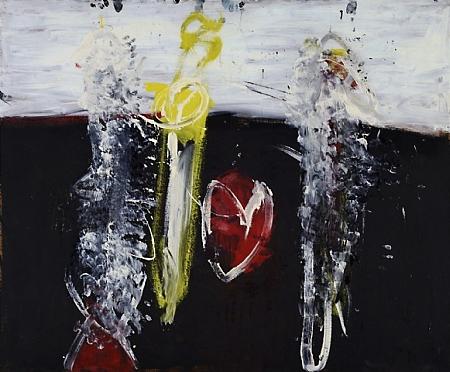
Guardians of the Heart
Alan Davie
1958
_______________________
Trace Fossils
Dylan Trigg
(....)
Looking inward, I discover a “time which pursues its own independent course, and which my personal life utilizes but does not entirely overlay”. The body belongs to the order of the present, to a subject that has temporarily found a place to dwell on this planet, earth. But the organic life of the human body is short, and its finite experience of lived time remains incommensurable with the anonymous existence that brought human subjectivity into this world in the first place. As such, the human body is never entirely in possession of its own being, both temporally and materially. Turning inward, something evades my reflection. Touching my left hand with my right hand, perception falls short and the body recedes into darkness, a darkness from which, no reason can reach.
That I am never truly in possession of myself, but instead the summonation of a prehistoric, prepersonal agency that possesses me is something to be understood in conceptual terms alone. We do not, after all, experience the other self first hand, but only indirectly; that is to say, as a trace. How can we begin to understand this relation between the trace of a past which has never been present and a body that is instantiated in that past?...(more)
_______________________
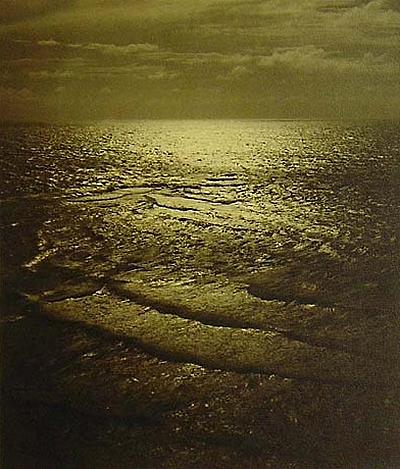
Sea's Awakening
Olive Cotton
1937
_______________________
Say
George Szirtes
(....)
say the trace
you leave behind fades in time as people forget
your precise dimensions and the exact
pitch of your voice, that the vast internet
of the imagination registers you as a fact
without context, swimming in the immense
indivisible particularity of a compact
universe beyond summoning, say that a sense
of loss can be anticipated and is so,
or has been, as a whispered confidence
from one part of your brain to another and you go
round knowing all this for ever, my darling,
as do I, as does the voice saying yes, I know
in the poem, would that be at all consoling?
Say it were so: say it to the moon and to the ear
listening on the phone, to the waves rolling
towards your feet in the darkness, to the fear
of falling and let it go, my dear, let the rain
fall, let waves lap, let the invisible appear.
...(more)
Making Sense
qarrtsiluni
September-October 2007
Editors: Katherine Abbott and Rob Mackenzie
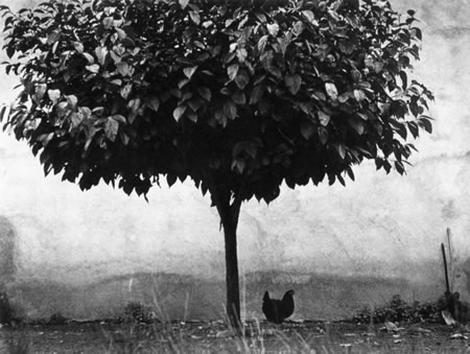
Édouard Boubat
1923 - 1999
Edouard Boubat interviewed by Frank Horvat To me, photography is like a quest, or a pilgrimage, or a hunt. I love painting, I love music, but photography is what has allowed me to get outside of myself. If I were eighteen years old, I would take up drawing, if I were four years old, I would study music. But if I were seventy-five, I would continue to photograph.
_______________________
Eduardo Chirinos’s “Reasons for Writing Poetry”
Translated from the Spanish by G.J. Racz
Reviewed by E.C. Belli
words without borders
I don’t
know what to sing. I am the others. I hope
the others are me. Like the trees.
I don’t know what to sing,
no nightingales on my finger.
*
It has taken centuries to say ‘orange nightfall.’
(....)
The task of the translator in this case could not have been an easy one—effectively rendering the same voice but in different periods of its experience. It is handled beautifully, however, by Gregary Racz who manages to preserve many of the characteristics that Chirinos scholars attribute to the poet’s work in Spanish. From the introduction, Esperanza López Parada recognizes an “abhorrent likelihood that something has already been said and the discomforting feeling that nothing new can be said” suddenly jumping “into the tranquil lake of [Chirinos’s] poetic diction.” José Miguel Oviedo, on the other hand, finds Chirinos’s voice to be “melodious, deliberate, cadenced, serene, and reflexive, which sets him apart from the poets of his generation for whom it was common to seek out dissonance and colloquialism.” All of these opinions are accounted for in the English verses rendered by Racz.
Like the Okapi whose camouflaged coloring is designed to preserve him, Chirinos is, quite literally, the world around him. He mirrors his surroundings (the simplicity and tragedy of everyday life: “Still one fine day you’ll see/ the cowherds brushing (or bathing) the calf to sell at a good price/ with the aim of moving just that much closer to Lima”), the digested canon (“They have called me the “Depraved of Depraved,” accused me of deceiving innocent creatures” in “Tiresias Speaks”; epigraphs at the start of nearly each poem conjure influences). Importantly, though, it is not an exact reflection that is sent back to us. Rather, Chirinos is an amalgamation of familiarity, of little shards of the mirrored world and experience, that, in their amalgam, have become strange and given him his originality, the power to endure: “That’s the way the world is, Edward, Edward,/ the world that makes of love an ear-splitting scream,/ that makes of love a broken windowpane.”...(more)
Reasons for Writing PoetryEduardo Chirinos G.J. Racz (Trans.) salt publishing
_______________________

Slow Remains (a short film)
Camille Martin
“The universe isn’t mine: it’s me.”
Camille Martin (Rogue Embryo) takes a train ride, camera and The Book of Disquiet in hand
(....)I think what I love so much about train travel is its artifice, its literary qualities. And it’s the metaphorical and philosophical dimensions of travel where Pessoa and I find common ground. A passage I found myself returning to during my trip:
Eternal tourists of ourselves, there is no
landscape but what we are. We possess nothing,
for we don’t even possess ourselves. We have
nothing because we are nothing. What hand
will I reach out, and to what universe? The
universe isn’t mine: it’s me.
Like Borges and his insistent refrain that “There is no whole self,” Pessoa set about dissolving the notion of a unitary Cartesian identity. And like the ephemeral scenery from a train, the self relentlessly renews itself and enters the present with continually shifting points of reference....(more)
_______________________

Edward Okun
b. September 27, 1872 1 2
_______________________
transform!
european network for alternative thinking and political dialogue
Issue 08/2011
The Raging Tempo of the Long Decline - A Manifesto
Micheal Scharang (....)
The carnival barkers who today propagate the free market, which never existed, the intercessors of Western democracy, which, intended as the sovereignty of the people, was always, with private property, something less than this - the carnival barkers and intercessors, continuously more poorly paid, are crying increasingly louder that the whole world must be exactly like the first world, and this exactly at a time in which the latter is bursting asunder.
A distinctive sign of the decline of an epoch is the opinion terrorism that operates under the name of freedom of opinion and whose goal is the opinion mush that is daily cooked up anew, becoming thinner and more tasteless until public and published opinion become the intellectual monastic soup for poor and rich - the ideal of a "Volksgemeinschaft". Nothing may be thought, said, or written, which, instead of criticising the dominant system with hypocritical sanctimony, questions it....(more)
_______________________
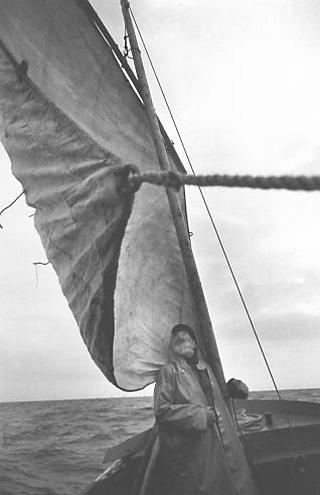
Édouard Boubat
_______________________
The Forest of Estrangement
I dream and lose myself, doubly so, in me and the woman ... I'm consumed by the black fire of an overwhelming fatigue ... I'm constricted by the false life of an enormous positive yearning...
O tarnished hapiness! ... Eternal hesitation at the crossroads! ... I dream, and behind my consciousness someone is dreaming with me ... And perhaps I'm no more than a dream of that Someone who doesn't exist. ...
The dawn outside is so far away! and the forest so near to those other eyes of mine.!
(...)
In the clepsydra of our imperfection, steady drops of dreaming marked the unreal hours.... Nothing is worth our while, O my far-away love, except to know how sweet it is to know that nothing is worth our while.
The static motion of the trees; the troubled quiet of the fountains; the indefinable breathing of the sap's deep pulsing; the slow arrival of dusk, which seems not to fall over things but to come from inside them and to reach its spiritually kindred hand up to that distant sorrow (so close to our soul) of the heavens' lofty silence; the steady and futile falling of leaves, drops of estrangement in which the landscape comes to exist only in our hearing, and it becomes sad in us like a remembered homeland - all of this girded us uncertainly, like a belt coming undone.
(...)
And just as we were thinking of mentioning the forest, it looms once more before us, as dense as ever but now more anguished with our anguish, and sadder with our sadness. Our idea of the real world flees in its presence like a dissipating fog, and once more I possess myslef in my wandering dream, set in that mysterious forest...
-
[ Fernando Pessoa, The Book of Disquiet, edited and translated by Richard Zenith ]
_______________________
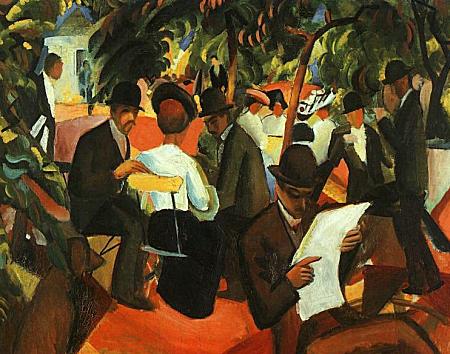
Garden Restaurant
August Macke
1912
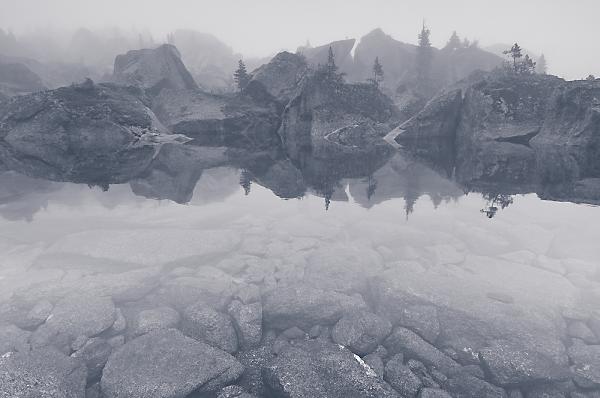
The silence of the stones.
Alexandr Ermolitsky
Russian Landscape via
_______________________
And the trees about me,
Let them be dry and leafless; let the rocks
Groan with continual surges; and behind me,
Make all a desolation. Look, look, wenches!
Paint me a cavernous waste shore
Cast in the unstilled Cyclades,
Paint me the bold anfractuous rocks
Faced by the snarled and yelping seas.
Display me Aeolus above
Reviewing the insurgent gales
Which tangle Ariadne's hair
And swell with haste the perjured sails.
....
T. S. Eliot (September 26, 1888 - January 4, 1965), Sweeney Erect
_______________________
a an av es
Alan Davies
(....)
amen worm earns ear roam
avows essence scorn ace arms numen
vase urn raves no rose arse craven
evanescence covers canon nonsense
maven caesura comma venus sores
waxen sorrow acumen wrens remove
nacreous reverence cavern accrue
curve reserve cancerous come razz
awesome avers summer swarm ease
...(more)
Alan Davies : 7 Poemsonedit 10
Alan Davies at EPC and PennSound_______________________
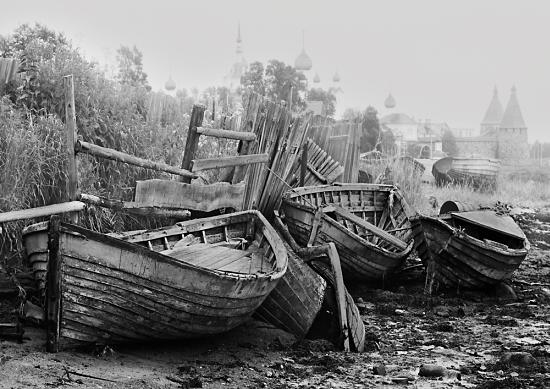
Zero feet under the keel
Maxim Misha
Russian Landscape
_______________________
EARISH
Give me this vague wreck
heave her the corn’s teacher to die in his laugh
this vague wreck
heave her down laugh’s path
this wreck that his story’s taken on
on hurts hung
more gone.
11 poems from EARISH
Thirty Poems of Paul Celan
Robert Kelly
presented by Jerome Rothenberg
_______________________
Beyond Another Ocean
Notes By C. Pacheco
Fernando Pessoa
Translated by Chris Daniels
In a fevered feeling of being beyond another ocean
There were positions of a living more clear and limpid
And apparitions of a city of beings
Not unreal but livid with impossibility, sacred in purity and in nudity
I was the gateway to this null vision and the feelings were only the desire to have them
The notion of things beside themselves, each with their own inwardness
All were living in the life of remnants
And the mode of feeling was in the mode of living
But the form of those faces had the placidity of dew
Their nudity was a silence of forms without means of being
And there was wonder at all reality being only this
But life was life and it was only life
Often my thought works in silence
As smoothly as a greased machine moves without a sound
I feel good when it so moves and I immobilize
So as not to break the equilibrium that allows this to occur in me
I foresee that it is in these moments that my thought is clear
But I do not hear it and it works stealthily and in silence
Like a greased machine driven by a belt
And I can hear nothing but the serene sliding of the parts at work
Sometimes I recall that all other persons must feel the way I do
But they say it gives them a headache or causes dizziness
This recollection came to me as could any other
As for example the recollection that people do not feel the sliding
And they do not think what they do not feel
...(more)
fascicle
issue one / summer 2005
_______________________
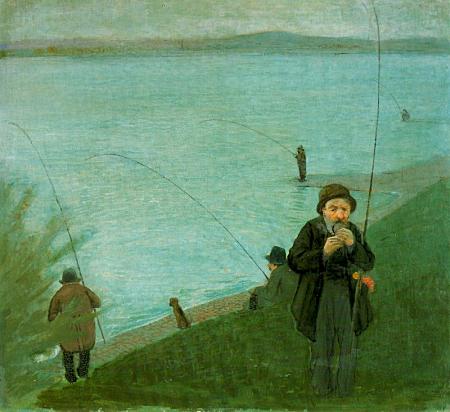
August Macke
_______________________
The Lost Art of Walking
The History, Science, Philosophy, Literature, Theory and Practice of Pedestrianism
Geoff Nicholson
google books
reviewed by Steve Mitchelmore
(....)As Nietzsche and Marc Augé have argued, forgetting is as necessary to a healthy life as memory. Walking would then be forgetting and writing memory. Nicholson's fine company thereby has to betray the title's promise of unity in order to do justice to his subject, which he does. Any quibbling can take a hike....(more)
_______________________
Occupy Wall Street rediscovers the radical imagination
David Graeber
... the ultimate failure here is of imagination. What we are witnessing can also be seen as a demand to finally have a conversation we were all supposed to have back in 2008. There was a moment, after the near-collapse of the world's financial architecture, when anything seemed possible.
Everything we'd been told for the last decade turned out to be a lie. Markets did not run themselves; creators of financial instruments were not infallible geniuses; and debts did not really need to be repaid – in fact, money itself was revealed to be a political instrument, trillions of dollars of which could be whisked in or out of existence overnight if governments or central banks required it. Even the Economist was running headlines like "Capitalism: Was it a Good Idea?"...(more)
_______________________
There is nobody in this country who got rich on his own — nobody. You built a factory out there? Good for you. But I want to be clear. You moved your goods to market on the roads the rest of us paid for. You hired workers the rest of us paid to educate. You were safe in your factory because of police forces and fire forces that the rest of us paid for. You didn’t have to worry that marauding bands would come and seize everything at your factory — and hire someone to protect against this — because of the work the rest of us did.
Elizabeth Warren
youtube
_______________________
"As for the Republicans -- how can one regard seriously a frightened, greedy, nostalgic huddle of tradesmen and lucky idlers who shut their eyes to history and science, steel their emotions against decent human sympathy, cling to sordid and provincial ideals exalting sheer acquisitiveness and condoning artificial hardship for the non-materially-shrewd, dwell smugly and sentimentally in a distorted dream-cosmos of outmoded phrases and principles and attitudes based on the bygone agricultural-handicraft world, and revel in (consciously or unconsciously) mendacious assumptions (such as the notion that real liberty is synonymous with the single detail of unrestricted economic license or that a rational planning of resource-distribution would contravene some vague and mystical 'American heritage'...) utterly contrary to fact and without the slightest foundation in human experience? Intellectually, the Republican idea deserves the tolerance and respect one gives to the dead."
-- H.P. Lovecraft to C.L. Moore, August 1936
driftglass
_______________________

Daniel Korzhonov
Russian Landscape
_______________________
The Testament of a Stone: [pdf]
Notes on the Mechanics of the Poetic Image
Ivor Winters
Secession N°8, 1924
Secession, 1922-24 (dir. Gorham B. Munson)
"Reissues" section of Jacket2
Secession, founded in 1922 by Gorham B. Munson, sought to give corner to the “youngest generation” of interwar modernists. Printed at various junctures in Vienna, Berlin, New York, Florence, and Reutte (Tyrol), Secession nevertheless became an important platform distributing literary Dadaism to New York. Accompanied by editors Kenneth Burke, John Brooks Wheelwright, and Matthew Josephson (often operating under the nom de plume Will Bray), Secession moved in upredictable directions over the eight installments of its premeditated two-year run.

along the Rideau Trail
near Westport
photo - mw_______________________
Philosophical Letters Addressed to a Lady
Petr Chaadaev
(1829)
Translated by Nathaniel Knight
Look around you. Everyone seems to have one foot in the air. One would think that we are all in transit. No one has a fixed sphere of existence; there are no proper habits, no rules that govern anything. We do not even have homes; there is nothing to tie us down, nothing that arouses our sympathies and affections, nothing enduring, nothing lasting. Everything passes, flows away, leaving no trace either outside or within us. In our homes, we are like guests; to our families, we are like strangers; and in our cities we seem like nomads, more so than those who wander our steppes, for they are more attached to their deserts than we are to our towns...
Our memories reach back no further than yesterday; we are, as it were, strangers to ourselves. We move through time in such a singular manner that, as we advance, the past is lost to us forever. That is but a natural consequence of a culture that consists entirely of imports and imitation. Among us there is no internal development, no natural progress; new ideas sweep out the old, because they are not derived from the old but tumble down upon us from who knows where. We absorb all our ideas ready-made, and therefore the indelible trace left in the mind by a progressive movement of ideas, which gives it strength, does not shape our intellect. We grow, but we do not mature; we move, but along a crooked path, that is, one that does not lead to the desired goal. We are like children who have not been taught to think for themselves: when they become adults, they have nothing of their their own--all their knowledge is on the surface of their being, their soul is not within them. That is precisely our situation ...(more)
_______________________

photo - mw
_______________________
Soul and gravel
So thought the youngster: The soul
must be a sleep. First
when you touch it,
it awakes, and thus becomes
a waking sleep, a sort of
dormant marsh that
receives and buries. It happens
when you are fifteen.
He thought: Life is bigger than
its meaning, a mysterious gravel
of grey days where no one is able
to stay without the help of the
mechanical routine that dries out
the soul’s marsh. High above the years
Gösta Ågren
Translated by David McDuff
Poems from the collection I det stora hela ('On the whole', Söderströms, 2011)
books from Finland
_______________________
Bodies Without Skin
Feeling Out of a Ubiquitous Future
David Gruber
ctheory
(....)This essay argues that thinking about the role of biological skin in the formation of human subjectivity and the current impetus to bio-technologically "re-skin" the human body through the development of a sensual and sensing ubiquitous domain can challenge the efficacy of an analytic founded on heterogeneous collections of "bodies" in a post-Deleuzian mode. To make the case, this essay first challenges Mark Hansen's description of "the skin ego" as a passing of the subjectivity through the body and re-situates the emergence of a subjectivity in childhood as a "bursting forth" from the material affordances of skin/s. This subtle shift is intended to exhume for discussion the skin dependencies of bodies in understanding themselves as bodies and in conceptualizing the world-as-world. After establishing the importance of skin, the essay then asserts that multiple skins in a ubiquitous, bio-compatible, mutually developmental environment causes an unprecedented shift in the formation and awareness-capacities of human subjectivity. Characterized by collectivity and immediacy, this shift leads to a situation of "exceedingly complex emergability" where the traces of "bodies" coming together disappear as no individual can trace or detect how, where, or why its affects are produced or what its affecting scope might be. The essay ends by arguing that greater complexity and dependence on the immediate coming together of Whatever Anywhere all the time in a ubiquitous "pure presencing," indicates a problem in deontological theory with an analysis developed from X subject's identification of affecting and affectable "bodies." ...(more)
_______________________
Toward A Provisional Definition Of Disequilibrium
Chris Martin
exquisite corpse
(....)We are compulsively ordering the world. It is a matter of aesthetics. It is a matter of choices that have been subsumed by a system of aesthetics so successful that we don't even know it exists. It is Debord’s spectacle, but a specific version of it, much older than the postmodern world. Merleau-Ponty suggests the term “reflective order.” Regardless of what we call it, it is a system predicated on the eradication of bodies. Consider disorder. In this system a disordered part disorders the whole. If we judge a part of the body as disordered, we judge the whole body as disordered. More than that, we judge the whole person as disordered. At any node on the spectrum, the key fact is that we judge. Again, it's a matter of aesthetics. Disordered parts may include race, class, weight, gait, or any of a myriad of factors. What unites them is our desire to isolate and eradicate them.
Where does this desire come from? A fiction. The oldest, most powerful, and most dangerous fiction. That one is separate. When do we learn this fiction? At the exact point we learn fiction. This happens twice. Once in a fire and once in a mirror. Then it keeps happening. Let’s start in the middle. The mirror.
We begin in a plenum, undifferentiated. In order to separate our selves from the plenum, to form a stable, cohesive self, we need a mirror. What we find in the mirror is twofold. We discover the abstract fact of ourselves and a thrilling ability to manipulate it. This false other—a second, idealized body—can be harnessed in endless ways. It is this usefulness, the dubious usefulness of the image, that dooms us. That dooms us to lose our bodies.
The notion of corporeal order does not necessitate the collapse of all representations of the body. It recognizes the practical usefulness of such models, but demands that they be recognized for what they are—provisional abstractions. These representations are not purely social in nature, but also physiological. The body image is not a pure invention of advertising, but a phenomenologically useful model for situating one's self in the world. Without it, as Merleau-Ponty points out, we could not scratch our own backs, much less believe in them. The real problem is how their provisionality becomes obscured by their usefulness, how the choice to follow these models, to utilize them, becomes a choice made without the recognition of choosing. Again, beware the dubious usefulness of the image!...(more)
_______________________
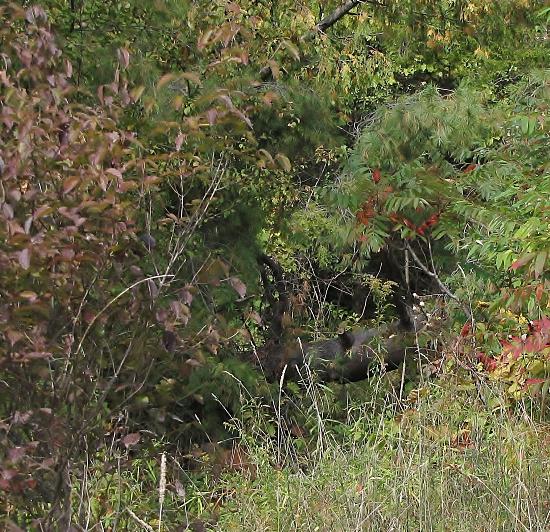
photo - mw
_______________________
Jacques Rancičre on The Ignorant Schoolmaster
Emancipation does not hinge on the power of words as such. It hinges on the power of the relation with the book. The materiality of the book is opposed to the position of the master; the book is in your hands, and nobody is there to tell you how you have to understand words. There is the possibility of a lot of translations being made by the reader so that, in a certain way, it is the reader who transforms the book. And even if you put the words in a certain order to convey a certain meaning, and even if words are overdetermined, it’s up to the reader to change the rules of the game. This is the first point.
The second point is that I used a strange idiom in this book, an idiom in between the language of Jacotot and the language of our contemporaries. The language of Jacotot is not the one used today to discuss issues of education. His lexicon is not the lexicon that is now used. There is a kind of linguistic strangeness in my book that makes it very difficult to read. Readers have to do something; they have to muddle through a kind of strangeness. These are not the words that are usually used for speaking about matters of education and politics. On the one hand, I bridged the two languages and the two epochs. But, on the other hand, I wanted to keep that strangeness, to throw a strange object into the middle of the debate in France between the sociological view of education and the view of education that says that it is knowledge that emancipates; I threw into the debate this object with both its intellectual and linguistic strangeness. Initially, the book was not read at all by professors. It was read mostly by social workers, artists, and psychoanalysts. Academics read it only ten or twenty years after it was written, which means precisely that it demanded a different treatment. The book was addressed to people who try to find not a new doctrine but a new way of dealing with words—with words and meanings.
in Aesthetics against Incarnation: An Interview with Anne Marie Oliver
Jacques Rancičre Essay Collection mediafire pdf
The Ignorant Schoolmaster: Five Lessons in Intellectual Emancipation Jacques Rancičre translated by Kristin Ross mediafire pdf
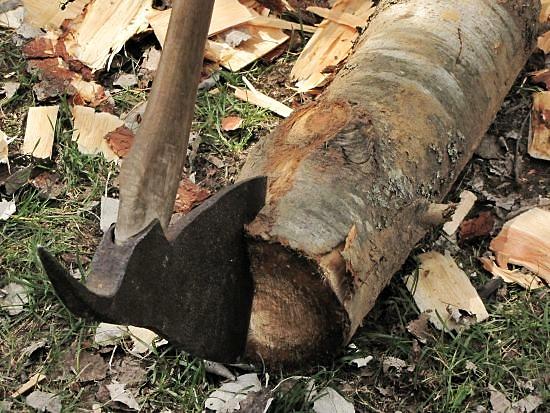
photo - mw
_______________________
Infancy and History. The Destruction of Experience
Girgio Agamben
translated by Liz Heron
mediafire pdf
The question of experience can be approached nowadays only with an acknowledgement that it is no longer accessible to us. For just as modern man has been deprived of his biography, his experience has likewise been expropriated. Indeed, his incapacity to have and communicate experiences is perhaps one of the few self-certainties to which he can lay claim. As long ago as 1933 Benjamin had accurately diagnosed this 'poverty of experience' of the modern age; he located its origins in the catastrophe of the First World War, from whose battlefields:men returned ... grown silent - not richer, but poorer in communicable experience ... What ten years later was poured out in the flood of war books was anything but experience that goes from mouth to mouth. And there was nothing remarkable about that. For never has experience been contradicted more thoroughly than strategic experience by tactical warfare, economic experience by inflation, bodily experience by mechanical warfare, moral experience by those in power. A generation that had gone to school on a horse-drawn streetcar now stood under the open sky in a countryside in which nothing remained unchanged but the clouds, and beneath these clouds, in a field of force of destructive torrents and explosions, was the tiny, fragile human body.' Today, however, we know that the destruction of experience no longer necessitates a catastrophe, and that humdrum daily life in any city will suffice. For modern man's average day contains virtually nothing that can still be translated into experience. _______________________
Punch a Hole in the World
Robert Moss
(....)
”Sometimes I take the Sun Gate. Sometimes I take the Moon Gate. Sometimes I take the Tree Gate. Sometimes I take the Rainbow Bridge. And sometimes I just punch a hole in the world.”
I've never heard anyone say it better. To live the larger life, we need to punch a hole in the world. This is what dreaming — sleeping or waking or hyper-awake — is really all about. ...(more)
Wild River Review
_______________________
The Toronto Review of Books
Issue One: September 20, 2011
Why TRB Why Now
Jessica Duffin Wolfe
editor
Each new issue of the TRB will cover books, online writing, and anything else our writers think deserves a second glance. Nevertheless, we’re calling ourselves The Toronto Review of Books not simply as a tribute to publications we admire, but also because we’re inspired by the diversity, eclecticism, erudition and hopeful ignorance in all libraries, and by the work and conviction that every book represents. Sitting alone in a room to write is among the more perverse, heartfelt, and optimistic of human activities. But the same is true of writing code for a beautiful website, or crafting an enthralling meme. These efforts all deserve attention, and reviews.
TRB blog - Chirograph
_______________________
Five Dials Number 20
_______________________
Human Technology:
An Interdisciplinary Journal on Humans in ICT Environments
Volume 7, Number 2, August 2011
Special Issue on Creativity and Rationale in Software Design
_______________________

photo - mw
_______________________
The Free Market
Spurious
... at least the government recognised philosophy as the enemy back then, W. says. At least they understood its power. The humanities are the enemy of capitalism: that's what they understood. Philosophy is the eternal adversary of capitalism ... Yes, the government understood that.
But now? The government no longer understands the humanities as an enemy, W. says. The government have nothing in particular against philosophy. They don't hate us, W. says. They don't even take us as their enemy. They have no idea that we're their enemies, W. says. They have no notion that the weapons of our thought are turned against them ...
They do not oppose us on ideological grounds, or because they suspect us of subversion. They are not concerned that philosophy is training terrorists of thought. They're simply going to marketise education, W. says. They're simply going to turn the university over to the free market, just as they are turning all the sectors of the economy over to the free market. It's got nothing to do with philosophy in particular ...
We can't become martyrs to philosophy, because its destroyers do not even see philosophy. We can't become warriors for philosophy, ebcause there is no particular battle against philosophy. We cannot set ourselves on fire for philosophy, because no one would understand the meaning of our sacrifice....(more)
_______________________
The Weight of the Poor
Cornel West interviews Frances Fox Piven
guernica
I don’t think about my legacy. But, what is distinctive about both my intellectual work and my life’s political work? I believe that the only way to change American society, and indeed I think this is true of other societies as well, is for people to discover the power latent in the cooperative roles that they play in a range of institutions. It’s like the old IWW song, “It is we who tilled the prairies, laid the railroads, built the cities… ” And we could add suckled the babies. The IWW was trying to discover and show its people that they play an important role in the society. And show them that the way they are insulted, abused, and oppressed is unjust, but not just that it’s unjust; it’s because they play an important role that they can change the society. That role is potential power. What they do when they go to work, when they obey the laws, or when they don’t obey the laws—is a source of power. I think it’s the question of the power of the oppressed that has been the central question in my life, both as an analyst and as an activist....(more)
_______________________
The Other Media Crisis: Irrelevance
Susan J. Douglas
Why bother, anymore, railing against government ineptitude or exposing corporate corruption? These days, it feels like shaking your fist at the cosmos.
There’s been much gnashing of teeth about the crisis in journalism—shrinking news staffs, closing newspapers, the rise of unreliable blogs, etc. But there’s another crisis we should be more worried about: the structural disconnect between the press—often flattered as the “fourth estate,” an essential pillar of free societies—and our political system. I mean really, what do you do when one of your two main political parties does not believe in facts?...(more)
_______________________
e-flux journal - 27
Editorial—“Alternative Economies”
Julieta Aranda, Brian Kuan Wood, Anton Vidokle
... the sources of art’s livelihood have always been dispersed, somewhat self-serving, and partly non-existent. This means that survival will probably not be a problem, and furthermore that the terms for that survival will be extremely interesting—even transformative. Art has always been made in a ghostly and somewhat treacherous economy built on solidarities and speculations, piracy and ideals: an alternative economy par excellence. As Lawrence Liang writes in his essay in this issue,
Alternative economies are alternative not just because they are quaint, but because they have figured out a way of being in the world that extends the limits of what they can know by drawing their own boundaries of the knowable. If we are to face up to the challenge of the crisis of the arts, it would be through a recognition that our potential lies beyond the threshold of the possible.
Now that the threat of imminent poverty is shrinking the field of available possibilities, it seems to be the opportune moment to consider how the incredible resourcefulness of artistic work can be deployed towards a more general reformulation of its terms for survival. In issue 27 of e-flux journal, essays by Paul Glover, Elizabeth Povinelli, Raqs Media Collective, Franco Berardi, and Lawrence Liang begin to address the question through concrete strategies for gaining economic autonomy, the anthropology of the gift, our time spent on earth as part of a commons, capitalist hyper-acceleration in the absence of any future worth looking forward to, and a “pirate” sense that defiantly demands access.
Planktons in the Sea: A Few Questions Regarding the Qualities of TimeRaqs Media Collective
Time, Acceleration, and ViolenceFranco Berardi (Bifo) What do you store in a bank? You store time. But is the money that is stored in the bank my past time—the time that I have spent in the past? Or does this money give me the possibility of buying a future?
These distinctions between storing and investing are linked to essential changes from early bourgeois capitalism to late capitalism, and also to the history of the relationship between capitalism and our lives, our subjectivity and our singularity. Here I will try to find some reference points for understanding recent shifts in the perception of this relation between money, language, and time....(more)
_______________________

photo - mw
_______________________
Art of the Anthology
An Interview with Jerome Rothenberg by Travis Macdonald (Part One)
From an early time, I had been doing a certain amount of anthologizing in my head: poems in juxtaposition with other poems. I had a feeling for that going back a long time. But then again, I have a sense that most poets carry something like an anthology within them.

photo - mw
_______________________
The End of Autumn
Francis Ponge
translated by Beth Archer
In the end, autumn is no more than a cold infusion. Dead leaves of all essences steep in the rain. No fermentation, no resulting alcohol: the effect of compresses applied to a wooden leg will not be felt till spring.
The stripping is messily done. All the doors of the reading room fly open and shut, slamming violently. Into the basket, into the basket! Nature tears up her manuscripts, demolishes her library, furiously thrashes her last fruits.
She suddenly gets up from her work table ; her height at once immense. Unkempt, she keeps her head in the mist. Arms dangling, she rapturously inhales the icy wind that airs her thoughts. The days are short, night falls fast, there is no time for comedy.
The earth, amid the other planets in space, regains its seriousness. Its lighted side is narrower, infiltrated by valleys of shadow. Its shoes, like a tramp's, slosh and squeak.
In this frog pond, this salubrious amphibiguity, everything regains strength, hops from rock to rock, and moves on to another meadow. Rivulets multiply.
That is what is called a thorough cleaning, and with no respect for conventions! Garbed in nakedness, drenched to the marrow.
And it lasts, does not dry immediately. Three months of healthy reflection in this condition; no vascular reaction, no bathrobe, no scrubbing brush. But its hearty constitution can take it.
And so, when the little buds begin to sprout again, they know what they are up to and what is going on— and if they peek out cautiously, all numb and flushed, they know why.
But here begins another tale, thereby hanging perhaps but not smelling like the black rule that will serve to draw my line under this one.
The Voice of Things
Francis Ponge
Edited and translated with an introduction by Beth Archer
ifile pdf
Six Poems Francis Ponge drunken boat
_______________________

photo - mw
_______________________
My Creative Method
Francis Ponge
from Methods
(....)
If ideas disappoint me, give me no pleasure, it is because I offer them my approval too easily, seeing how they solicit it, are only made for that. Ideas seek my approval, demand it, and it is only too easy for me to offer it; this offering, this consent, produces no pleasure in me but rather a kind of queasiness, a nausea. On the other hand, objects, landscapes, events, individuals of the external world give me much pleasure. They win my trust. For the simple reason that they don't need it. Their concrete presence and evidence, their density, their three dimensions, their palpable undeniable aspect, their existence— much more certain than my own, their way of implying: "this doesn't get invented (it gets discovered)"; their way of expressing: "this is beautiful because I wouldn't have invented it, I couldn't have"—all this is my sole justification for existence, or more precisely, my pretext; and the variety of things is what really constructs me. What I mean is this: their variety constructs me, permits me to exist even in silence. Like the locus around which they exist. But in relation to only one of these things, with regard to each one in particular, if I consider no more than one, I disappear; it annihilates me. And if it is only my pretext, my justification for existence, if indeed I must exist, if my existence begins with it, then that will only be, can only be, through some creation of mine about it.
What creation? The text.
And to start with, how does the idea for such a creation come to me, how did I gain an idea of it, how do I conceive of it?
Through works of art (literature).
(....) The Voice of Things
Francis Ponge
Edited and translated with an introduction by Beth Archer
ifile pdf
_______________________
"... if Aristotle were around today, I very much doubt he would think that the distinction between renting yourself or members of your family out to work and selling yourself or members of your family to work was more than a legal nicety. He’d probably conclude that most Americans were, for all intents and purposes, slaves."
What is Debt? - An Interview with Economic Anthropologist David Graeber
When thousands of people begin assembling in squares in Greece and Spain calling for real democracy what they are effectively saying is: “Look, in 2008 you let the cat out of the bag. If money really is just a social construct now, a promise, a set of IOUs and even trillions of debts can be made to vanish if sufficiently powerful players demand it then, if democracy is to mean anything, it means that everyone gets to weigh in on the process of how these promises are made and renegotiated.” I find this extraordinarily hopeful....(more)
_______________________
... politics in this country now is in a state that I think has no analogue in American history and maybe nowhere in any parliamentary system. It’s astonishing. I mean, I’m not a great enthusiast for Obama, as you know, from way back, but at least he’s somewhere in the real world. Perry, who’s very likely—very likely to get the—to win the primary and win the nomination, and maybe to win the election, he’s often in outer space. I mean, his views are unbelievable. Bachmann is the same. Romney is kind of more or less toward the center. These are—the positions that they are taking are utterly outlandish.
I mean, as you mentioned before, I just came back from Europe, where people just can’t believe what they’re seeing here, what people are saying. I mean, take one of the really crucial issues for the human species: doing something about environmental catastrophe. Well, you know, every single one of the Republican candidates—maybe not Huntsman, but every major one—is a climate change denier. It’s kind of ironic in the case of Perry. He says there’s no global warming, while Texas is burning up with the highest temperatures on record, fire all over the place, and so on. But it doesn’t matter, it’s just not happening. In fact, the one who has conceded that maybe global warming has taken place is Michele Bachmann. I heard a statement of hers in which she said, "Well, yes, maybe it’s happening. It’s God’s punishment for allowing gay marriage," or some comment like that. I mean, this—what’s going on there is just off the international spectrum of sane behavior.
- Noam Chomsky
_______________________
The descent of the Republican Party
Andrew Cohen
... It makes for an interesting spectacle watching their game of oneupsmanship bidding for the affections of the homophobes, the hangers, the creationists, the nativists and others who colonize a sad, hard corner of national life. It's the descent of the Republican Party.
_______________________

photo - mw
_______________________
The Trees Delete Themselves Inside a Fog-Sphere
Francis Ponge
Translated By Karen Volkman
Poetry (April 2008)
In the fog which surrounds the trees, the leaves are stripped—leaves defaced already by slow oxidation, deadened by the sap's out-seeping for flowers' and fruits' gain, since the harsh heats of August made of them a less.
In the bark, vertical furrows crease and slit where dampness drains to the earth's base, indifferent to the living citizens of the trunk.
Flowers scattered, fruit conferred. Since youth, this relinquishing of breathing attributes and body parts has become for the trees a standard practice.

photo - mw
_______________________
"I wanted no longer to presume some naturalized feedback loop between inside and outside, as has been endemic to affect theory, missing the spray of things."
The Failure to Fail to Thrive is LifeLauren Berlant
Supervalent Thought
(....)Amidst all this, the non-survival of attention is not necessarily affect or defense, but minimally technical, a relief from experiencing the states of self-organization. We are not always banging into atmospheres and moods and getting focused and we’re not always haunted dramatic marionettes. None of the work on ellipsis has really dealt with its aggressive recession. The fragile propping of life onto the forms available for it is at the heart of the ellipsis that is comedy, where the inside joke stretches out into the joyous or comforting feeling of having dodged a bullet and delivered instead belonging and discernment ....(more)
_______________________
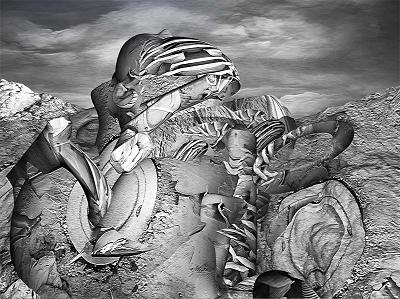 Twelve proofs that we are alive
Peter Ciccariello
invisible notes
the immeasurable effervescence on the unexposed underside
that I can speak to you through contradiction
the sound of things as they are
the brittle sandpaper of your twilight
the ring of dread that follows a participle
...(more)
_______________________
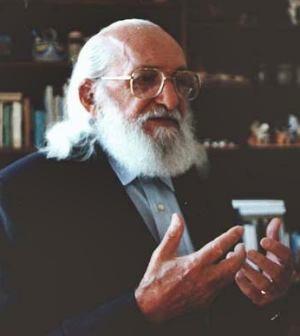
Paulo Freire
September 19, 1921 – May 2, 1997
Pedagogy of the Oppressed
Paulo Freire
translated by Myra Bergman Ramos
google books
mediafire pdf
The central problem is this: How can the oppressed, as divided, unauthentic beings, participate in developing the pedagogy of their liberation? Only as they discover themselves to be “hosts” of the oppressor can they contribute to the midwifery of their liberating pedagogy. As long as they live in the duality in which to be is to be like, and to be like is to be like the oppressor, this contribution is impossible. The pedagogy of the oppressed is an instrument for their critical discovery that both they and their oppressors are manifestations of dehumanization.
Liberation is thus a childbirth, and a painful one. The man or woman who emerges is a new person, viable only as the oppressor-oppressed contradiction is superseded by the humanization of all people. Or to put it another way the solution of this contradiction is born in the labor which brings into the world this new being: no longer oppressor nor longer oppressed, but human in the process of achieving freedom.
This solution cannot be achieved in idealistic terms. In order for the oppressed to be able to wage the struggle for their liberation they must perceive the reality of oppression not as a closed world from which there is no exit, but as a limiting situation which they can transform. This perception is a necessary but not a sufficient condition for liberation; it must become the motivating force for liberating action. Nor does the discovery by the oppressed that they exist in dialectical relationship to the oppressor, as his antithesis that without them the oppressor could not exist — in itself constitute liberation. The oppressed can overcome the contradiction in which they are caught only when this perception enlists them in the struggle to free themselves.
We Make the Road by Walking: Conversations on Education and Social Change
Paulo Freire and Myles Horton mediafire pdf
Pedagogy of the Heart
Paulo Freire translated by Donaldo Macedo and Alexandre Oliveira mediafire pdf
Pedagogy of Freedom
Ethics, Democracy, and Civic Courage
Paulo Freire
translated by Patricia Clarke google books
_______________________
Debt's History, Implications, and Critical Perspective
An Interview With David Graeber
_______________________
Oppression and Liberty
Simone Weil
translated by Arthur Wills and John Petrie
ifile pdf
_______________________

fruits of victory
photo - mw
_______________________
Varieties of irreligious experience
There are many ways not to believe.
Jonathan Rée on the evoluton of atheist thought
(....)
Some of us however – including many who regard ourselves as non-believers – suspect that the new new atheism forces the pace, distorts the issues, and underestimates the intelligence of its enemies. If the older versions of atheism – from Moses and Socrates to Shelley and Nietzsche – were less straightforward than they might have been, the reason may be the complexity of religious phenomena rather than the obtuseness of those who sought to describe them. The difficulty is that people may commit themselves to a religion without buying into any particular theory as to what does or does not exist: they are simply throwing in their lot with some historic community, identified not by doctrines but by rituals, stories and a shared sense of the sacred. Religion as it enters the lives of many believers will not be damaged by a demonstration that it is not much good as science, any more than poetry will be threatened by the collapse of literary theory, or capitalism by a refutation of neoclassical economics. We atheists should not assume that theory always gets the last laugh.
(....)
Opponents of religion – anti-clericals, humanists, rationalists or whatever we want to call ourselves – ought to recognise that religion is a complicated box of tricks, containing much wisdom as well as folly, along with diversity, dynamism and disagreement. And we need to realise that many modern believers have moved a long way from the positions of their predecessors: as Mill once said, they may believe they are loyal to an old-time religion when in reality they have subjected it to “modifications amounting to an essential change of its character”. In particular, they may not accept the idea of God as an actually existing entity, so arguments for atheism will not disturb them; and they will be aware that there has always been more to religion than belief in God. The dividing lines between religiosity and secularism, or between belief and disenchantment, are not getting any clearer as time goes by, and if there has been a lot of traffic travelling from the camp of religion to the camp of disbelief in the past couple of centuries, it has followed many different paths, and is bound for many different destinations....(more)
_______________________

photo - mw

Cafe, Paris
1959
Saul Leiter
1 2
Saul Leiter: ResurrectedAdam Harrison Levy
(....)
Up until just a few years ago Leiter was all but forgotten, just another elderly East Village resident shuffling to the corner deli to get a pint of milk. And yet in the mid 1950s his photographs had appeared in the Museum of Modern Art, he had exhibited paintings with William DeKooning and Philip Guston and, in the early 1960s, he had a number of prestigious photography assignments for Harper’s Bazaar and Vogue. His fashion spreads alternated with those of Richard Avedon’s. It was a promising start at a time when such early achievement often led to major art world success. ...(more)
_______________________
Selections from
The Collapse of What Separtates Us [pdf]
Vincenz Serrano
Kritika Kultura
SHORT WALKS
(....)
To walk throiigh a city is to cut it it into parts: like a wound or a landscape the city opens, then like a scab or a room it closes. My scholar and I move in a pace so slow it is like postponement. When we walk through a city we hurt it, my scholar says: we make it aware of how much it is against itself. Our shadows are the bruises of buildings, our slowness keeps the wound from healing, our being together means we are prone to surprise: this church, clouds, that house, chance, this sweat, glance, that touch.
Show your face, dear city, then hide, says my scholar. How you reveal yourself is inseparable from how you conceal: it is a gesture called history. My scholar loves a street that leads to a point along a riverbank, ends where another street begins, ages along with its buildings, becomes blind corner, betrays its old name for a new one. In the ache of opposites, the city knows it is alive: crowd and solitude, old and new, beauty and decay, feeling and fact, silence and noise, grasp and emptiness. Make sense of this with me, says my scholar: if we talk to the city, how the city responds is a clue to how we shall be together.
I disagreed with my scholar's way of thinking;. I wanted to take things apart. In the city there is a steel church whose parts were made in another country and then sent here on separate ships. I thought to do the opposite: pry things apart, set the parts adrift, observe how dismantlement leads to the new: a dialogue between buttress and transept, nave and steeple. The streets which my scholar loved made sense to me, but only after going through a method akin to derangement: ariiving at the unknown after a long period of poison, suffering, disorder. Melt the steel of the steeple and create money. Take in water from the river and make thirst. Put two people side by side and produce silence.
(....) Kritika Kultura
_______________________
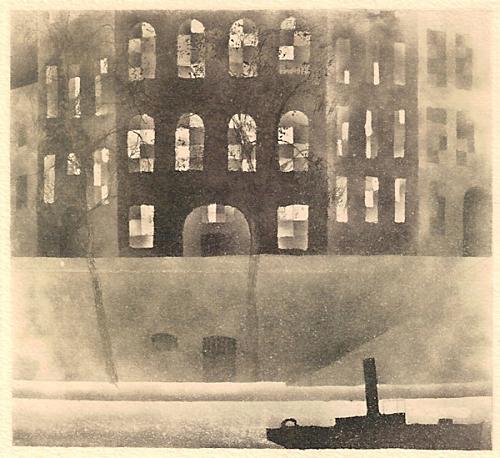
Alexander Alexeieff
from the collection of Richard Sica
50 watts
_______________________
The Melancholy of Resistance
Lįszló Krasznahorkai
translated by Georges Szirtes
google books
(An excerpt from the first chapter of the novel)
She had long left behind the enigmatic square of the station forecourt, had passed the junction with Zöldįg Road which led to the paediatric hospital, but not a soul did she encounter (meeting someone she knew might well be her salvation) below the bare wild chestnut trees of the unswervingly straight avenue, and beside the sound of her own breath, the light squeak of her footsteps and the humming of the wind in her face, she heard nothing, only the steady quiet puffing of what might have been some distant, unrecognizable machine whose sound vaguely reminded her of an ancient saw-mill. Although she continued to resist the force of circumstances which seemed to have been created expressly to challenge such resolution, in the complete absence of streetlight and the still oppressive silence she began to feel ever more like a victim cast to her fate, for wherever she looked seeking the filtered lights of apartments, the place assumed the look of all cities under siege, where, regarding all further effort as pointless and superfluous, the inhabitants had surrendered even the last traces of endangered human presence in the belief that while the streets and squares had been lost, the thick walls of buildings behind which they cowered afforded shelter from any serious harm. ...(more)
_______________________

Espaces Nomades
Matthieu Gafsou
_______________________
An Investigation of the Stone and the Shadow
Giorgio Agamben
Nuovi Argomenti (11), July-September 1968
courtesy of David Kishik at notes for the coming community
The Lion dreams
and dreams the Rose.
The Rose dreams
and dreams the King.
The King dreams
and dreams the law.
The law dreams
and dreams grace.
Grace dreams
and dreams the circle.
The circle dreams
and dreams the line.
The line dreams
and dreams pain.
Pain dreams
and dreams the scale.
The scale dreams
and dreams the shadow.
The shadow dreams
and dreams Gold.
Gold dreams
and dreams the stone.
The stone dreams
and dreams the serpent.
The serpent dreams
and dreams poison.
Poison dreams
and dreams death.
Death dreams
and dreams destiny.
Destiny dreams
and dreams life.
Life dreams
and dreams the mask.
The mask dreams
and dreams god.
God dreams
and dreams the word.
The word dreams
and dreams the Rose.
The Rose dreams
and dreams man.
Man dreams
and dreams the stone.
_______________________
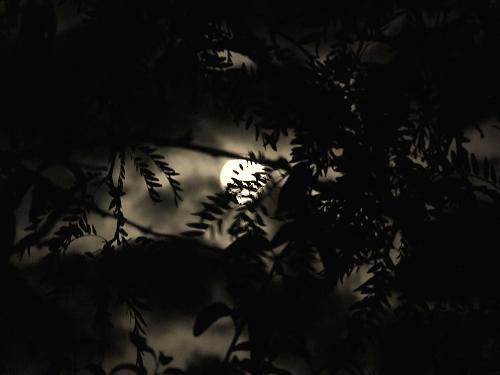
photo - mw
_______________________
"There isn´t anything anywhere any more"
An interview with Lįszló Krasznahorkai
Hungarian Literature Online
I often go into exile wherever I can, from America to East Asia, just to make sure I am not here. Literally, I will go anywhere just to make sure I don't have to be at home. Of course, the end result is that when I go to a place like this, I usually return shattered, disappointed, and disillusioned. Because there is no place on earth from which a guy like me would not return shattered, disappointed, and disillusioned. What is worse, it means that our yearnings have no meaning anymore. Bit by bit, after many years of unwilling wanderings, I am getting to be convinced there is no place worth yearning for. There isn't anything anywhere anymore. So there is a negative attraction at home and a positive push of repulsion abroad. I am not saying that the past is brilliant – the recent past, for instance, almost killed me. But those people, living under oppression, had that something about them that gave you hope that the democratic ideals we envisaged at the time could build us a country which is more tolerable when measured by the moral and aesthetic expectations we held. But let me repeat – I would in no way like to idealise what we had at the time. How could I? I would much rather say that we have now lost by the wayside even what little we had – all that once prevented people from becoming blinded by their situation. We have lost whatever used to stop people from selling their dignity for a spoonful of gold or a spoonful of free soup – whatever they have in their spoons. ...(more)
_______________________
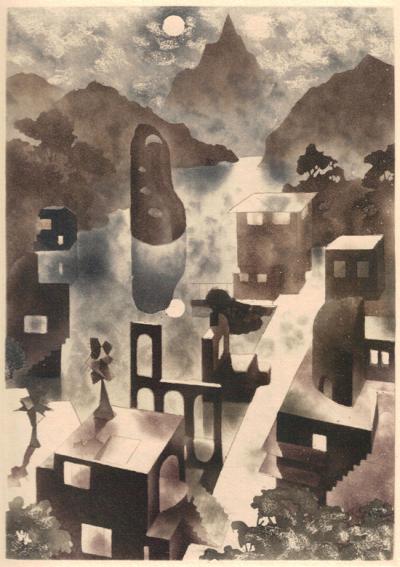
Alexander Alexeieff
_______________________
Collect the WWWorld. The Artist as Archivist in the Internet Age
Domenico Quaranta, Gene McHugh, Joanne McNeil, Josephine Bosma
lulu
"The last decade has seen an incredible growth in the production and distribution of images and other cultural artefacts. The internet is the place where all these cultural products are stored, classified, voted, collected and trashed. What is the impact of this process on art making and on the artist? Which kind of dialogue is going on between amateur practices and codified languages? How does art respond to the society of information? This is a book about endless archives, image collections, bees plundering from flower to flower and hunters crawling through the online wilderness. Alterazioni Video, Kari Altmann, Cory Arcangel, Gazira Babeli, Kevin Bewersdorf, Luca Bolognesi, Natalie Bookchin, Petra Cortright, Aleksandra Domanovic, Harm van den Dorpel, Constant Dullaart, Hans-Peter Feldmann, Elisa Giardina Papa, Travis Hallenbeck, Jodi, Oliver Laric, Olia Lialina & Dragan Espenshied, Guthrie Lonergan, Eva and Franco Mattes, Seth Price, Jon Rafman, Claudia Rossini, Evan Roth, Travess Smalley, Ryan Trecartin."
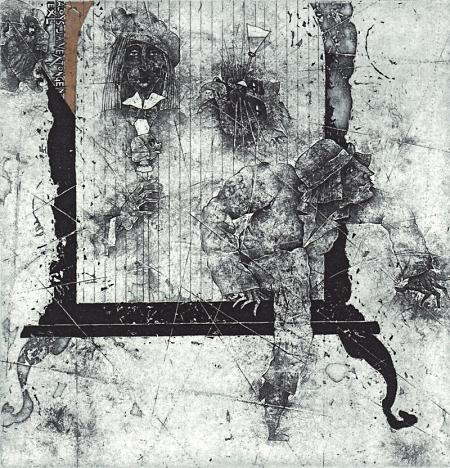
The Master and Margarita
Bookplates
Vladimir Zuev
From the collection of Richard Sica
50 watts
_______________________
The Street Window (Das Gassenfenster)
Whoever leads a solitary life and yet now and then wants to attach himself somewhere, whoever, according to changes in the time of day, the weather, the state of his business, and the like, suddenly wishes to see any arm at all to which he might cling -- he will not be able to manage for long without a window looking on to the street. And if he is in the mood of not desiring anything and only goes to his window sill a tired man, with eyes turning from his public to heaven and back again, not wanting to look out and having thrown his head up a little, even then the horses below will draw him down into their train of wagons and tumult, and so at last into the human harmony.
Franz Kafka: Absent-minded Window-gazing (Three Meditations)
Tom Clark
_______________________
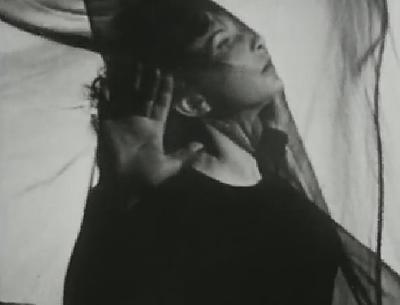
Meshes of the Afternoon
(1943)
Maya Deren
1917 - 1961
An Anagram of Ideas on Art, Form and Film
Maya Deren
(1946)
pdf available at
Monoskop
More Maya Deren on youtube At Land
(1944)
The Very Eye Of Night
(1958)
Meditation on Violence
(1948)
_______________________
Lanthanum 9.1
Henry Gould
i.m. Edwin Honig
just like a tree,
standing by the water...
You feel the autumn coming on now, in the slant
of plangent sunlight – the foam of starry clematis
breaking over the old iron fence. The sense
of a closing scene, a dénouement, in the chant
of crickets, lodged in their grass caskets, whirring;
of a turn, now, toward eschatology, at last –
& I’m thinking of you, Edwin, who almost
matched your father’s age (a birthday bell rang
yesterday). Your excellent elephant ear, elegant
master of Lips Monastery : bespeaking a faith
in the embodied word, steadfast. Only a wraith
of willow limbs toward the end, hanging on, gaunt
(haunted) through the fog of Alzheimer’s, you’ve gone
to the light of your old high home, big-hearted boy;
dancing on home, through a rain of hobbledehoy-
providential by-ways, awkward prodigal son...
...(more)
_______________________
Third Hand Plays: An Introduction to Electronic Literature
Brian Stefans
SFMOMA has asked me to write a weekly column about some of these works and ideas; I’ve, quite apparently, accepted the offer. I don’t have a strict plan — I’d like to reserve the right to offer brilliant commentary on the next politician to bring their career to a Twitterific halt, but generally, I will be writing about a series of concepts I’ve been developing called the “simples” of digital literature. Each of these simples describes some element of the deep structure of the text/algorithm interaction inherent in all digital textuality — those places where the mathematical underpinnings of text as it appears on the screen (since there is always something at work keeping the text you are reading now visible) and how artists exploit them to create unique effects.
The usefulness of these simples is that I can use one or two of them to describe relatively simple works of digital literature — the word-movies of YHCHI I link to above — or use a bunch of them to describe something more technologically complex, such as the magisterial work by David Clark called “88 Constellations for Wittgenstein (to be played with the left hand),” which has moments of text animation like in YHCHI along with other features that require a different simple to describe. Perhaps the literary equivalent for a simple could be found in the various tools we have developed to describe poetry: meter, rhyme, stanza form, assonance, alliteration, etc. No one of these could adequately describe all poems, but taken together they can get us pretty close to describing objectively, say, some of the startling effects of Gerard Manley Hopkins’s sonnets (and might get us a little closer to the “meaning”).
...(more)
Links to the series so far.
_______________________
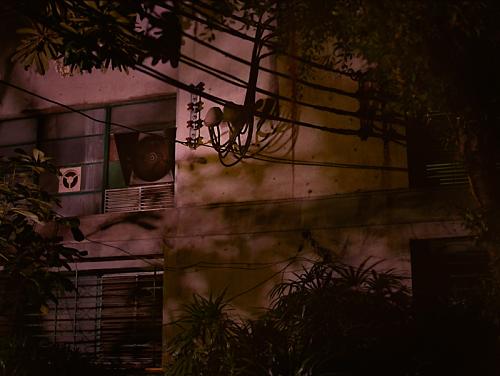
Silence Has an Echo
Nigel Bennet
winners
Conscientious Portfolio Competition 2011
_______________________
From Risk To Disaster
A New Paradigm
by Philippe Simay & Florent Guénard
translated by Susannah Dale
books & ideas
(....)
... the anthropology that emerges here is of a different kind: it is a negative anthropology, on two counts at least.
Firstly, it does not aim to produce specific knowledge on the various human cultures, as ethnology does, or to philosophically identify the nature of man. On the contrary, this anthropology has developed subtly, in the background of studies on disasters, without ever seeking to define itself or circumscribe its own field of research.
Secondly, if this anthropology is negative, it is mainly because it conceives man by subtraction: not by stating what he is not, but rather by showing what he no longer is, and therefore what he must give up being.(....)
Negative anthropology – clearly found in philosophical reflections on disaster, and a great deal more implicit, though still present, in the human and social sciences – therefore guides our assessment of everything we should today give up. Firstly, all the ostentation of modern man: his belief in scientific progress and technology, his teleological vision of history and his claims to control nature. We should also abandon our post-modern distrust and the prudence of reflexive modernity, which, while acknowledging the uncertainty of our actions, are still considered able to evaluate the effects. It would therefore be futile to think that we can only learn technological lessons from disasters – like Prometheus, whose fall made him wiser and more modest. The only lesson to be learned from disasters is that we are fallible; we are vulnerable and helpless in the face of events that we can never truly control. At the beginning of the 1930s, Walter Benjamin wrote of this fatigue of modern man who vowed to remain poor and asked to be released of his responsibility to answer continually for the world:
“Poverty of experience. This should not be understood to mean that people are yearning for new experience. No, they long to free themselves from experience; they long for a world in which they can make such pure and decided use of their poverty – their outer poverty, and ultimately also their inner poverty – that it will lead to something respectable.”
This is the kind of “poverty” for which the disaster paradigm today wishes to achieve recognition, thereby rejecting in a single action modernity and post-modernity, trust and reflexivity. This action is by no means arbitrary or isolated. Rather, it directly echoes the various intellectual undertakings that endeavour to rethink social ties, not on the basis of abstract rationality but in terms of compassion, mutual help and vulnerability....(more)
|

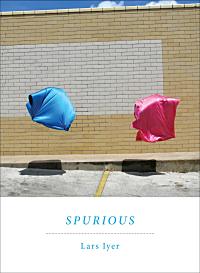


 The Age of Briggs & Stratton
The Age of Briggs & Stratton






































